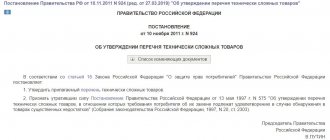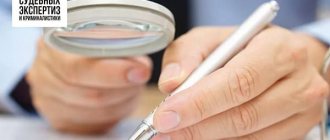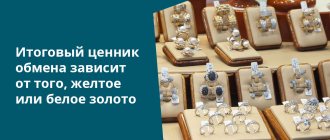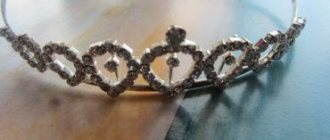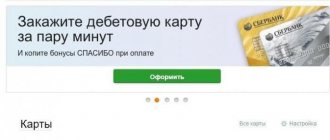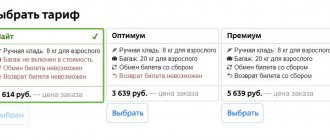The buyer may think about returning medical equipment in two cases. The most common case is if the purchased product turns out to be of poor quality, for example, it contains a manufacturing defect or defect, it is spoiled, broken or does not perform its functions, and the breakdown or defect was not the fault of the buyer.
The second option assumes that the client simply did not need the product or was not suitable for certain reasons, and he wants to cancel his purchase. The legislation defines groups of goods that can be returned, as well as a list of items that are not subject to exchange or return. Medical technology belongs specifically to the second group, but there are some subtleties here too.
Is it legal to return or exchange medical products?
Based on the order of the Ministry of Health and Social Development No. 785 dated December 14, 2005, it can be argued that it is not possible to return high-quality pharmaceutical products after purchase to a pharmacy. However, this does not apply to all cases.
Article 18 of the Law “On the Protection of Consumer Rights” dated 02/07/1992 No. 2300-1 determines that the buyer has the right to return a product with any defects (expired expiration date, improper packaging of the product, etc.) and receive its full cost back .
Based on paragraph 1 of Article 18 of the above-mentioned law, it is known that the consumer, in the event of purchasing a low-quality medicinal product, may demand:
- replace the purchased product with a similar one without the specified defects;
- replace with a product of similar effect from another brand;
- demand compensation, the difference between the previous product and its replacement;
- demand a refund of the money spent on this product.
Non-returnable pharmacy assortment
If the consumer has no significant complaints about the quality of the product, then it will not be possible to return the product. The pharmacy employee has every reason not to accept the purchased product back.
There is a list of pharmacy products that are not subject to exchange or return . This list is legislated by the Government of the Russian Federation by Resolutions No. 55 of January 19, 1998 and No. 1222 of October 20, 1998. This list contains:
- medications used for home treatment;
- personal hygiene items (toothpaste, toothbrushes, combs);
- cosmetics and perfumes (skin creams, hair products);
- medical equipment, devices for monitoring health indicators;
- materials for one-time use (syringes, patches, etc.).
A detailed list of non-food products that are not subject to return or exchange can be found here.
Concept of human personal hygiene item
The document approved by law lists the following products for individual hygiene measures: toothbrush, devices for combing and styling hair, artificial hair in strands or wigs. It is understood that the list can be expanded by analogy and include other types of products.
Attention! If you have any questions, you can chat for free with a lawyer at the bottom of the screen or call Moscow; Saint Petersburg; Free call for all of Russia.
Attention
Any items that are used individually by a person can be recognized as personal hygiene products. These products include washcloths and sponges, all kinds of brushes for feet and hands, razors and replacement blades, elastic bands and hair clips, sanitary pads and tampons, diapers, condoms.
A number of products relate to both personal hygiene products and products for preventive and therapeutic measures at home. These are manicure accessories, baby care devices (for example, pacifiers and pacifiers), sanitary products (heating pads, syringes, surgical gloves, etc.).
For your information
The return conditions for both categories of goods are the same, so they are not strictly distinguished.
It is common among sellers to mistakenly classify hats and sunglasses as personal care products, although they are not.
Under what conditions is this possible?
The product can be returned to the pharmacy if it has been determined that it is of poor quality . The quality of a medicinal product is influenced by the following criteria:
- Best before date. After the expiration date, a product not only loses its consumer medicinal properties, but can also cause a lot of unknown side effects. The pharmacy is responsible for the sale of such a drug and subsequently for the health of the buyer.
- Incorrect labeling includes an error in indicating the date of manufacture (or its complete absence) or expiration date, lack of information about the rules for storing this product.
- The description of the drug in the instructions does not correspond to its real appearance. The instructions inside the package do not correspond to the product purchased.
- There are no instructions for use for the drug.
- Unsealed packaging of the drug.
Important! In accordance with clause 24 of Russian Federation Decree No. 55, the shelf life of the medicine must be sufficient for the buyer to be able to use it for its intended purpose. When selling a medicine, the pharmacist must ensure that the remaining shelf life is sufficient.
All of the above can be found quite quickly, right at the pharmacy, which means that it is advisable to check the purchased product without leaving the cash register.
In addition, before using the medicine it is important to read the instructions , but consumers do not always do this. But what is at stake is the most precious thing a person has - his health.
The resolution provides for cases when the return of goods without quality complaints can also take place.
- A pharmacy employee sold a prescription drug without presenting a prescription.
The consumer subsequently discovered side effects inconsistent with his medical condition, or the possibility of death in some cases. This drug must be taken back by the pharmacist. This is his mistake, so it will be easy to return the drug, because the pharmacy may be fined or deprived of its license. - If the drug was purchased by the consumer on the recommendation of a pharmacist, but the instructions contained contraindications that were unacceptable to the consumer.
- If the pharmacist sold the medicine in a package that was not the one requested by the consumer.
Attention! It is difficult to prove the latter, especially if there are no witnesses to the purchase.
Customs clearance of medical products. Important aspects
Medical products are a preferential category of goods. In this regard, customs clearance of such types of cargo is one of the most complex and, as a rule, begins with answers to 2 main questions:
- Are your products medical grade?
- For what purposes is import into the territory of the Russian Federation carried out?
In part 1 of Art. 38 of Law No. 323-FZ of November 21, 2011 “On the fundamentals of protecting the health of citizens in the Russian Federation” provides a detailed definition of the term “medical products”.
Permits for medical products
If the import of medical devices is carried out for the purpose of selling goods in Russia, then you need to determine the list of necessary permits.
You may need:
- Registration certificate (RU);
- Declaration of Conformity;
- License of the Ministry of Industry and Trade of Russia or information about the inclusion of goods in the Unified Register of the EEC RES (UEC), if the medical product is a high-frequency device (HFD) or a radio-electronic device (RES).
Let's take a closer look at these documents:
1. Registration certificate (RU)
If you do not have information whether a RU was previously issued for your product, then first we recommend checking the availability of this document on the Roszdravnadzor website, where the register of issued permits is posted. Link to check: https://www.roszdravnadzor.ru/services/importmed. If on this site you found a RU for the product you need, then you can use this document for import into the territory of the Russian Federation. The law establishes that after registration of a medical product by Roszdravnadzor, according to the letter of the Federal Service for Surveillance in Healthcare and Social Development dated April 23, 2008 No. 01I-171/08, any person, even if not the company holding the registration certificate, has the right to import , sell and use such medical products on the territory of the Russian Federation.
It should be taken into account that the RUs of unlimited validity, issued before 01/01/2013 for medical products and medical equipment, were valid and were subject to replacement until January 1, 2021 with RUs in a new form approved by Roszdravnadzor. The registration certificate is replaced without going through the procedure for state registration of medical devices on the basis of an Application submitted by the applicant to the Federal Service for Surveillance in Healthcare.
If this link indicates that registry for your product has not previously been obtained, then the procedure and stages of registration of a medical device are established by Decree of the Government of Russia dated December 27, 2012 No. 1416 “On approval of the rules for state registration of medical devices.”
First, you will need to import samples of products for the purpose of their state registration. To do this, you must obtain a Permit to import medical devices from Roszdravnadzor. The procedure for importing medical devices into the territory of the Russian Federation for the purpose of state registration is described in more detail in Order of the Ministry of Health of Russia dated June 30, 2020 No. 661n.
In 2021, registration deadlines for some groups of products used to combat coronavirus infection were significantly reduced. You can read more detailed information in the Decree of the Russian Government of March 18. 2021 No. 299 “On Amendments to the Rules for State Registration of Medical Devices”, which provides a list of medical devices with a low degree of potential risk, the state registration of which (issuance of RU) is carried out in a shorter period of time.
The status of consideration of documents after submitting an application can be checked on the same website where they check the list of all previously issued registration certificates.
2. Declaration of conformity
Very often, medical devices require a Declaration of Conformity (DC), which is issued on the basis of the RU.
If products are produced in large series, and changes in technology and consumer qualities are not planned in the near future, then the declaration must be drawn up immediately for mass production and for a maximum period of validity (3 years).
The name of the product and its model must match one to one with the RU. You should also pay attention to OKPD2 codes, because Some OKPD2 codes qualify for VAT benefits.
You can also use someone else's DS if you have a power of attorney from the DS holder (the Applicant company).
3. License of the Ministry of Industry and Trade of Russia or information about inclusion in the Unified Register of the EEC RES (UChU)
As a separate item, we will consider the procedure for importing medical products that are High Frequency Devices (HFD).
For example, HF units include magnetic resonance imaging (MRI machines) and electrical pacemakers.
According to list 2.16. Decision of the EEC Board dated April 21, 2015 No. 30, VChU is restricted for import into the territory of the EAEU. In this regard, customs clearance requires the provision of a License from the Ministry of Industry and Trade of Russia or information about the inclusion of products in a unified register.
The license is issued based on the results of testing of goods in the laboratories of the radio frequency center (RFC). In this regard, samples must first be imported. It is important to take into account that samples can only be issued under the temporary import procedure (IM 53) and on the basis of the Conclusion (Permit Document) of Roskomnadzor, which is issued for a period of six months.
If the goods are listed in the Unified Register of the EEC RES (UChU), then import is carried out without obtaining a license from the Ministry of Industry and Trade of Russia. For example, this register contains medical cosmetology equipment, some X-ray machines, and electrosurgical high-frequency devices.
Obtaining tax benefits for medical products
Medical products differ from other goods in that tax benefits are established for this category of cargo. If all of the above conditions for product registration have been met, then customs clearance is possible with a complete exemption from VAT (0% VAT) or partial exemption from VAT (10% instead of 20%).
Full exemption from VAT (0%) when importing medical products into the Russian Federation is possible subject to the following conditions:
- availability of RU issued by Roszdravnadzor;
- presence of the imported product in the “List of medical goods, the sale of which on the territory of the Russian Federation and the import of which into the territory of the Russian Federation and other territories under its jurisdiction are not subject to (exempt from taxation) value added tax”, approved by Resolution of the Government of Russia No. 1042 of September 30, 2015 (with additional amendments according to Decree No. 1574 of October 1, 2020).
This list contains four sections, which indicate different conditions for their use. The List contains product names, OKP, OKPD2 and HS codes. For example, 0% VAT is subject to stitching, stabbing, cutting and other instruments, some instruments for functional diagnostics, for medical laboratory research, etc.
You can count on a partial exemption from VAT (10%) under the following conditions:
- availability of RU for a medical device;
- the presence of a HS code in the “List of codes of medical goods in accordance with the unified Commodity Nomenclature of Foreign Economic Activity of the Eurasian Economic Union, subject to value added tax at a tax rate of 10 percent when imported into the Russian Federation”, approved by Decree of the Government of Russia No. 688 of September 15, 2008 d. This document contains HS codes and names of medical products, including gypsum, implants, serums, diagnostic reagents, etc. To obtain a partial exemption (10% VAT) for medical products, you should be guided by the HS codes indicated in the list.
Full payment of VAT in the amount of 20% is made when importing goods into the territory of the Russian Federation in the following cases:
- if the product is not listed in any of the above Lists;
- if the RU contains the terms “set”, “composition”, “set”, the number of products is indicated, and the goods are imported not fully assembled, not in full composition, or in a quantity exceeding that specified in the RU. For example, the RU specifies endoscopic pumps with accessories: silicone tubes (no more than 4 pcs.), transformers (no more than 2 pcs.). The recipient decided to bring 1 pump, 5 tubes and 3 transformers. Then for the extra quantity exceeding the quantity specified in the RU - 1 tube and 1 transformer, you will need to pay VAT in the amount of 20%.
- if in the Republic of Uzbekistan the imported goods are declared as accessories and are imported without the medical device for which they are intended. The letter of the Federal Customs Service of Russia dated March 7, 2014 No. 05-17/10390 clarifies that accessories are items that are not medical devices themselves, but are used in conjunction with medical devices for their intended purpose.
For example, the RU specifies a therapeutic system consisting of a pulse generator and its accessories - a personal patient unit, software. The equipment customer's personal unit broke down after the end of the warranty period. If only this block is indicated in the invoice, and the pulse generator is not imported, then the block is subject to payment of VAT in the amount of 20% during customs clearance.
What will you need and when can you return your purchase?
If the buyer discovers deficiencies in the medicinal product or product after purchase, he should collect the following documents for return:
- a free-form application requesting the return or exchange of goods;
- packaging, instructions for the medicinal product (or copies thereof), depending on where the defect or discrepancy occurred;
- cash or sales receipt;
- doctor's prescription if the product was purchased with a prescription;
- testimony of witnesses (if any);
- warranty card (if available).
The buyer has the right to make such a claim at any time before the end of the warranty period of the product. When the product does not have a warranty period, within the first two years from the date of purchase.
Return or exchange procedure
Making a claim
When a consumer encounters a defective product, the first thing he must do is write a free-form statement addressed to the organization (in particular, the head of the pharmacy) where the product was purchased. The claim must include the following aspects :
- Details of the organization where the goods were purchased. It is important to clarify the statutory name of the organization, position and full name of the head in whose name the application will be written. This information can be obtained either on the company’s website or in the consumer corner of the pharmacy itself.
- Full name and passport details of the buyer.
- Description of the product (serial number, article number, model, brand, etc.) indicating its shortcomings.
- Description of the situation in which the purchase occurred, namely: date, time, address of the outlet, full name of the pharmacy employee.
- A description of exactly how and when the defects in the product were discovered by the buyer.
If the buyer has not kept the receipt, then in the application it is necessary to refer to clause 5 of Article 18 of the Law “On Protection of Consumer Rights”, which determines that the receipt is not the basis for depriving the buyer of the opportunity to return defective goods after purchase. If there is a receipt, it is important to indicate this in the application, this can speed up the process of receiving funds.
At the end of the document, the date and signature of the buyer with a transcript are affixed. The claim is made in 2 copies . One of them bears a mark from the seller indicating that he has accepted this claim for consideration.
Sellers always try to avoid returns, so it is important to arm yourself with a regulatory framework to indicate the grounds for a return. You can rely on the following documents (it is also important to indicate them in the application itself):
- Article 18 of the Law “On Protection of Consumer Rights”, which determines that the consumer can return the product if it is not of proper quality;
- Article 309 of the Civil Code of the Russian Federation, which determines that the seller and buyer must fulfill their obligations fully according to the word of the law;
- Article 310 of the Civil Code of the Russian Federation, which determines that neither one nor the other party can unilaterally refuse to fulfill their obligations.
If the product is returned on the day of purchase, then there is no need to file a claim. The basis for returning the goods will be a cash receipt order (RO), signed by the head of the pharmacy.
Documenting
The process of processing the return of goods depends on the period within which the buyer wishes to return it.
If this happened on the day of purchase, then the buyer is issued a cash receipt order, according to which he can immediately receive payment at the cash desk. The cashier draws up a statement on the return of money for unused cash receipts in one copy. It must contain the following information:
- details and name of the organization according to registration documents, as well as TIN;
- brand, model, cash register number where the receipt was issued upon purchase;
- act number, date of its preparation;
- number of the receipt, the cost of the purchase made;
- Full name and position of the person with whose permission the return is made.
This document is issued once at the end of the day, and not after each return. Several checks can be entered into it. The form of the KM-3 act is unified by Resolution of the State Statistics Committee of Russia No. 132 of December 25, 1998.
The act contains the signatures of several officials: chief accountant, cashier, senior cashier, manager. The document is also accompanied by a purchase receipt, the return of which is issued, and an application for the return of goods from the consumer. In some cases, an explanatory note from the pharmacist who made the incorrect sale is attached.
Reference. If a cash receipt is lost, the buyer writes a statement of loss in free form addressed to the organization.
If the goods are returned after the day of purchase, then it is impossible to return the money from the operating cash desk when the client applies, according to the letter of the Federal Tax Service dated April 11, 2013 No. AS-4-2/6710. In this regard, this act is not issued.
In this case, when a dissatisfied buyer contacts us, a document regarding the return of the goods is drawn up. This document is created in any form in printed or handwritten form in 2 copies and the following is indicated there:
- details of the organization and full name of the head in the header of the act and details of the applicant;
- product and its defects;
- if the act is drawn up after the examination, then indicate its results;
- the basis for returning the goods (you can specify a regulatory document).
Based on the KM-3 act, a cash order is issued in the KO-2 form and a sum of money is issued to the buyer from the organization’s main cash register.
Deadlines
The seller must return money for low-quality goods within 10 days from the date of the buyer’s request.
If the buyer wishes to replace the product with another, the pharmacy is obliged to satisfy the request for an exchange no later than 7 days from the date the buyer submits an application . If an examination is required, the period can be extended to 20 days.
How to return glasses back to the store
Those who need to return purchased glasses should keep in mind that they belong to the category of goods defined as “medical devices and equipment”, which means they cannot be exchanged or returned within 14 days. That is, if they do not fit in shape, color, etc., then you will not be able to return the glasses. But this is only provided that the glasses were purchased ready-made in a store or optician.
But prescription glasses made at an optician are exchanged according to a different scheme. The fact is that the frame is returnable, but the lens is not. In this case, if the glasses that do not fit are returned within 14 days, the buyer will receive a refund only for the frames, but not for the lenses or labor.
It’s another matter if the glasses were found to be defective during the warranty period. For example, the frame broke or the temple broke off. In this case, the seller is presented with a claim with a requirement to exchange for a similar product of proper quality or return the money spent. Moreover, the cost of frames, lenses and labor will be reimbursed.
If the issue is not an obvious defect, but personal discomfort when wearing glasses, then there are several options for subsequent actions. So, the buyer returned home, put on his glasses and was not satisfied with the quality of the picture. In this case, it is necessary to identify why this happens. It is possible that the doctor made a mistake when conducting examinations and writing a prescription, or it is possible that inaccuracies were made during the manufacturing process of the glasses.
Undoubtedly, an examination will be required to identify the cause. To verify the absence of medical error, you must contact an independent ophthalmologist. If he confirms the correctness of the diagnosis, then the problem must be looked for in the glasses. Alternatively, you should contact another optician and ask for a written report. But even if you can’t get the document, it doesn’t matter.
If, after all, the doctor is at fault, then the property claim is presented by the buyer to the institution that employs the medical worker. If the issue is poor-quality glasses, then the claim is addressed to the owner of the optics. In both cases, the consumer has the right:
- insist on repeated provision of the service free of charge;
- demand reimbursement of expenses for services provided by third parties (another optician or another doctor);
- refuse to fulfill the contract. In this case, all money spent by the buyer on glasses must be fully returned to him.
As for sunglasses, this category is not included in the list of goods that are not subject to exchange or return. This means they can be returned to the store within 14 days from the date of purchase.
What to do if you refuse?
If, after submitting an application to the pharmacy, the buyer receives a refusal to satisfy his request, then with this written refusal he can subsequently contact the following government and public organizations in his region:
- Roszdravnadzor.
- Rospotrebnadzor.
- Society for the Protection of Consumer Rights.
The above organizations can help the consumer defend their rights and contribute to sanctions against the pharmacy for an offense. If the consumer’s demand was not satisfied in this way, then he can go to court.
And - I - to - you with - a claim
If the client’s problem, in his opinion, has not been resolved, he can file a complaint with Rospotrebnadzor, Roszdravnadzor, the prosecutor’s office, the court, and other authorities. Representatives of these authorities have the right to come to the pharmacy for an unscheduled inspection, and then other violations may be identified. We do not consider cases where the buyer complains not about the quality of the purchased product, but about a violation of any legally established standards (SES, fire safety, etc.). There is a known case when, during a prosecutor's inspection, 9 reports of administrative offenses were drawn up in only one pharmacy!
